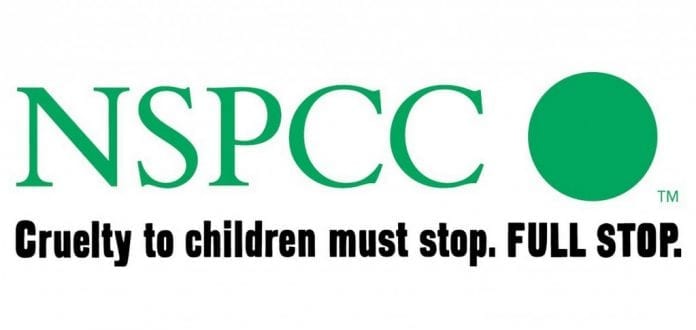- More than 100 incidents recorded on Facebook, Instagram and Snapchat in Wales during in first year since introduction of new anti-grooming law.
- Girls and boys aged between 12 and 15 targeted most frequently in Wales.
- Youngest child targeted in Wales was six years old.
- UK Government’s new laws to end Wild West Web must tackle grooming on social media
- Monday 18th June:
CHILDREN as young as six in Wales have been targeted across an array of online platforms in the first year following the introduction of anti-grooming laws.
A law of Sexual Communication with a Child came into effect in England and Wales on 3 April 2017 after an NSPCC campaign, and in the first year a total of 3,171 crimes were recorded by police forces – amounting to nine grooming offences per day.
A total of 274 offences were recorded across the four Welsh police forces in the same period.
More than half of the offences in Wales were logged by South Wales Police (158) with 53 in North Wales and 44 in the Gwent force area.
Dyfed-Powys Police supplied data for the period between October 2017 and April 2018 when 19 offences were recorded.
In Wales, grooming offences were recorded on 23 different platforms, with Facebook, Instagram and Snapchat comprising the top three most-commonly used with more than 120 taking place using those platforms alone.
Ninety-one crimes were reported in Wales against boys and girls aged between 12 and 15, while 56 offences were recorded against children aged 11 and under. The youngest victim recorded was just six years old.
Following the NSPCC’s #WildWestWeb campaign, the UK Government’s digital secretary Matt Hancock announced that laws will be brought in to regulate social networks, to keep children safe and prevent harms such as grooming.
The charity is now campaigning to ensure those laws are sufficiently robust to prevent grooming and to truly keep children safe. It is calling on Government to:
- Create mandatory safety rules that social networks are legally required to follow;
- Establish an independent regulator to enforce safety laws and fine non-compliant sites;
- Require social media sites to publish annual safety reports;
- Force platforms to develop technology to detect grooming using algorithms.Contact offences such as rape and sexual assault were among those recorded in connection with grooming offences.Mared, who has waived her right to anonymity, was groomed to send semi-naked pictures to them. She said: “At the beginning it was messages like ‘Hey, how are you?
- Mared Parry, from North Wales, was sent sexual messages from men 10 years older than her on Facebook when she was aged just 14.
- It comes ahead of the charity’s annual flagship conference How Safe Are Our Children? which begins on Wednesday 20th June in London and has the theme Growing Up Online.
“But as the weeks went on, they started sending messages that were more and more sexual. It was so subtle; that’s why it is so easy for an online chat to slip into being so wrong.
“If I didn’t reply or speak the way they wanted me to, then they would say: ‘You’re just too immature for me’. They were so manipulative, but you don’t even notice it.
“Looking back at it now, it’s scary to think that I sent semi-naked pictures to older guys. It could have gone a lot further.”
Peter Wanless, NSPCC chief executive, said: “These numbers are far higher than we had predicted, and every single sexual message from an adult to a child can have a huge impact for years to come.
“Social networks have been self-regulated for a decade and it’s absolutely clear that children have been harmed as a result.
“I urge digital secretary Matt Hancock to follow through on his promise and introduce safety rules backed up in law and enforced by an independent regulator with fining powers.
“Social networks must be forced to design extra protections for children into their platforms, including algorithms to detect grooming to prevent abuse from escalating.”
In Wales, NSPCC Cymru has called for the Welsh Government to co-ordinate and progress efforts to keep children as safe in their online worlds as they are offline.
Last year, Welsh Government announced plans to produce a children and young persons’ online safety action plan.
The NSPCC hopes it will deliver practical help and support for schools, parents and others in Wales involved in child protection online when it is published.
How Safe Are Our Children? takes place at the Queen Elizabeth II Centre, in Westminster, London on 20th and 21st June.
3,000 GROOMING OFFENCES ON 80 PLATFORMS: Stats Summary Sheet
After a three-year campaign by the NSPCC, on April 3 2017 the anti-grooming law of Sexual Communication with a Child finally came into force in England and Wales.In the first year of the new offence being in force, police recorded 3,171 offences.
Police told us what methods were used by groomers in 2,097 cases. In some cases police did not disclose the methods, and some crimes involved the use of multiple methods.
Facebook, Snapchat and Instagramwere the methods used nearly 70% of those cases.
Age groups most targeted by groomers
| Region | Total recorded offences |
| North | 1,217 (38.4%) |
| South East (Only partial information for London) | 593 (18.7%) |
| Midlands | 376 (11.9%) |
| South West (partial information for Wiltshire) | 366 (11.5%) |
| East | 336 (10.6%) |
| Wales (Partial information for Dyfed Powys) | 274 (8.6%) |
| British Transport Police | 9 (0.3%) |
Help keep news FREE for our readers
Supporting your local community newspaper/online news outlet is crucial now more than ever. If you believe in independent journalism, then consider making a valuable contribution by making a one-time or monthly donation. We operate in rural areas where providing unbiased news can be challenging. Read More About Supporting The West Wales Chronicle
























